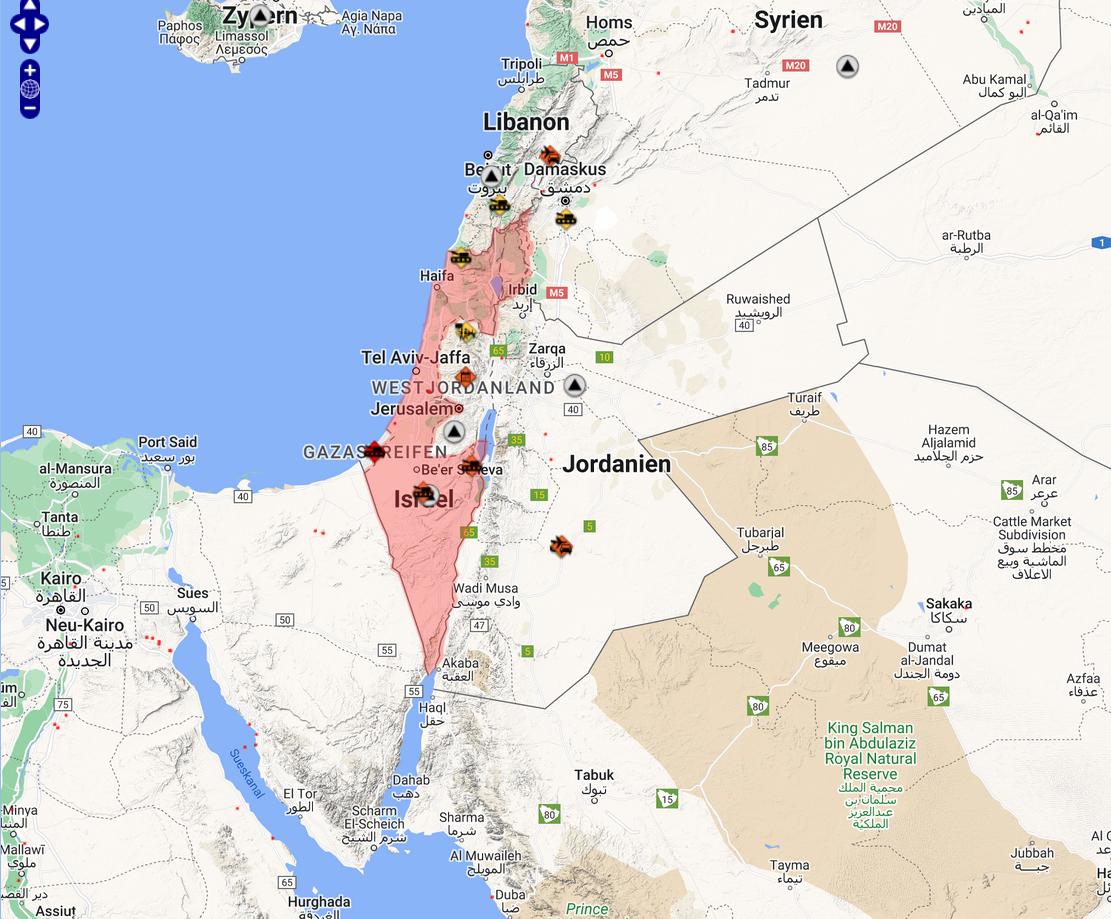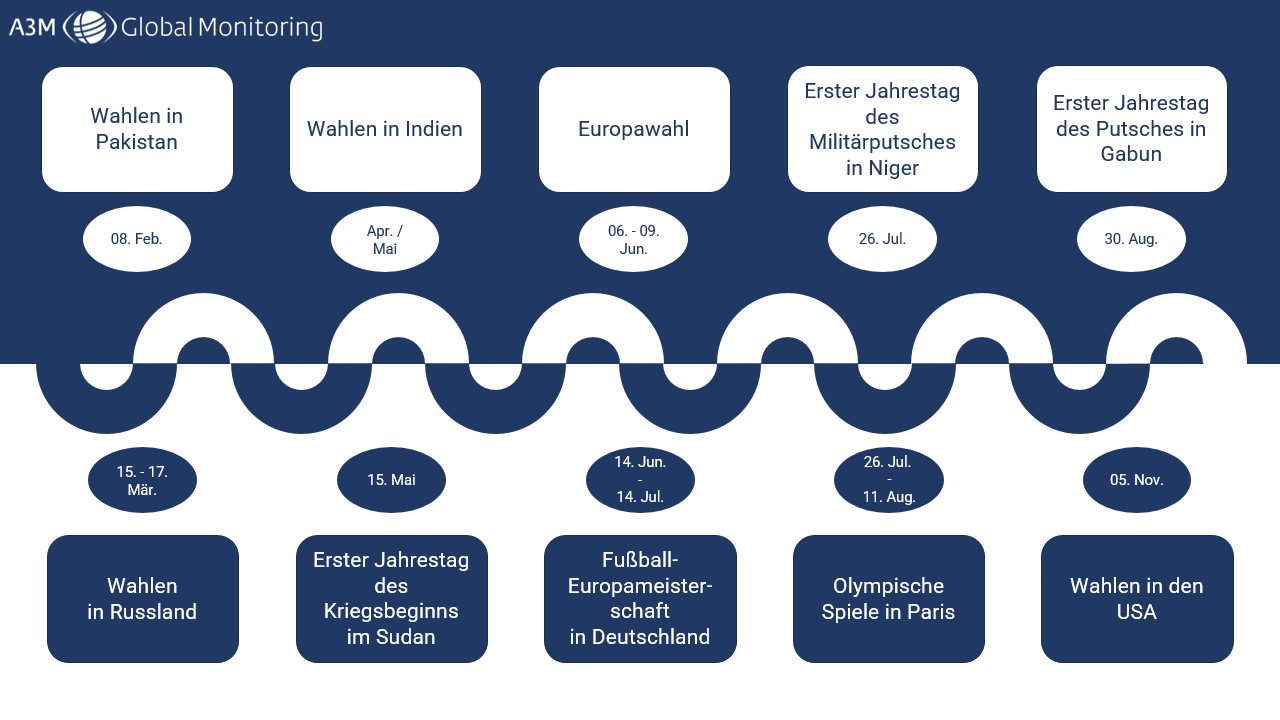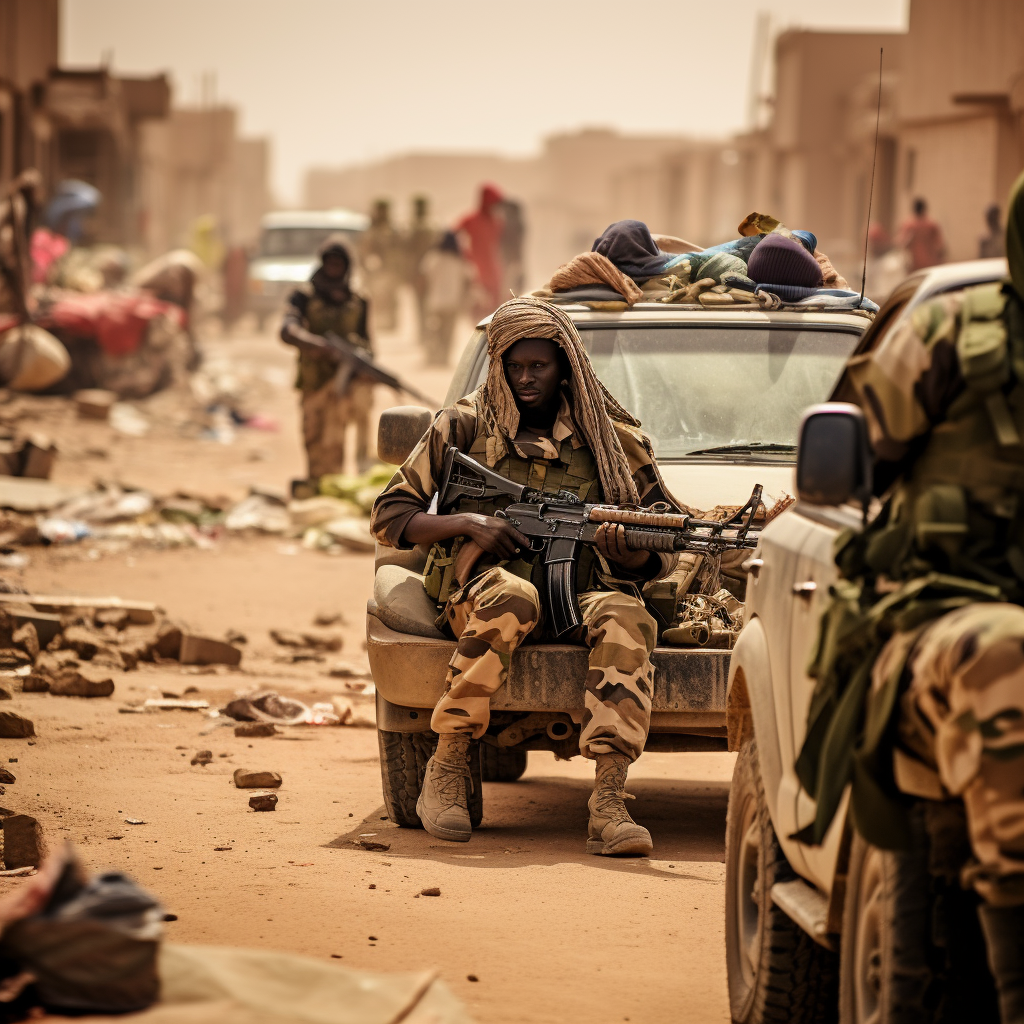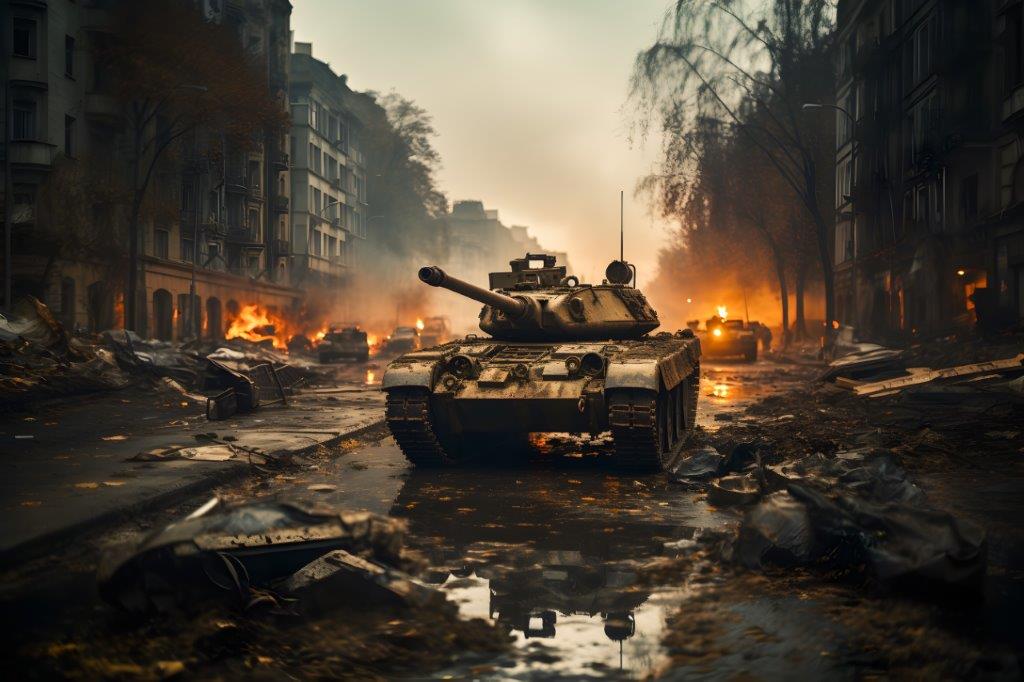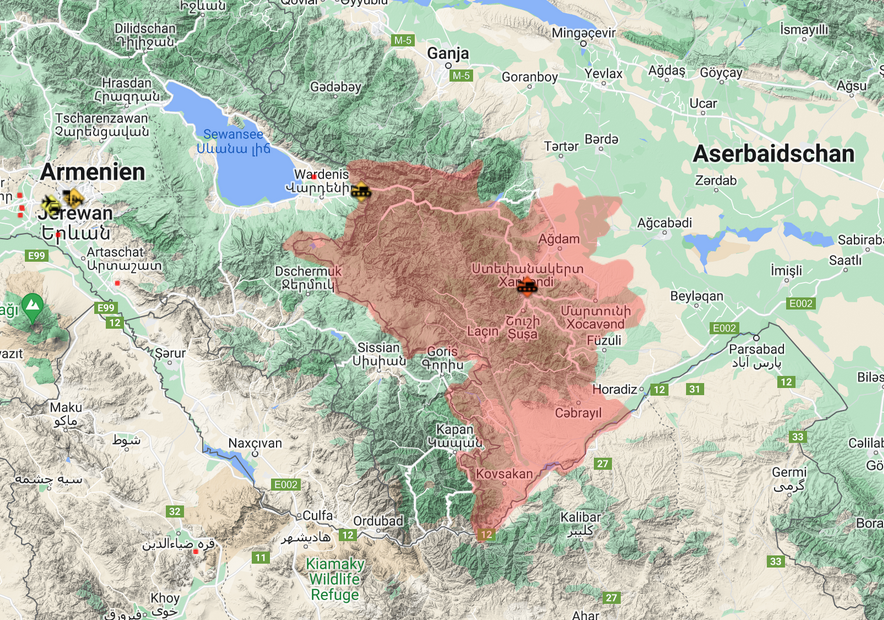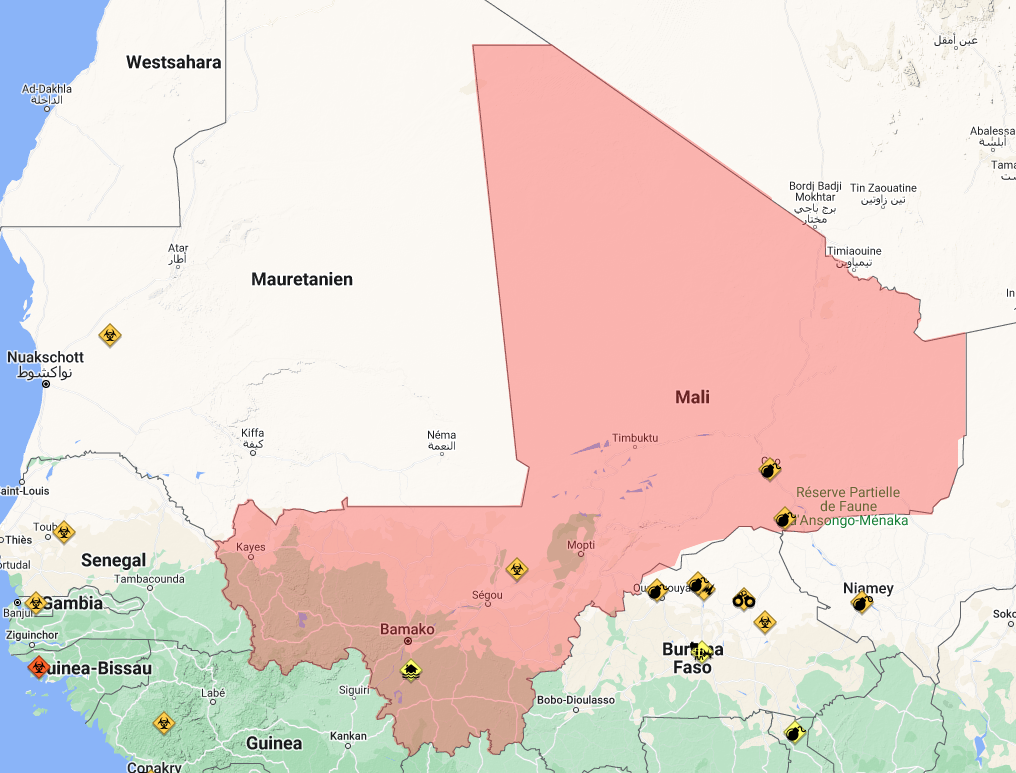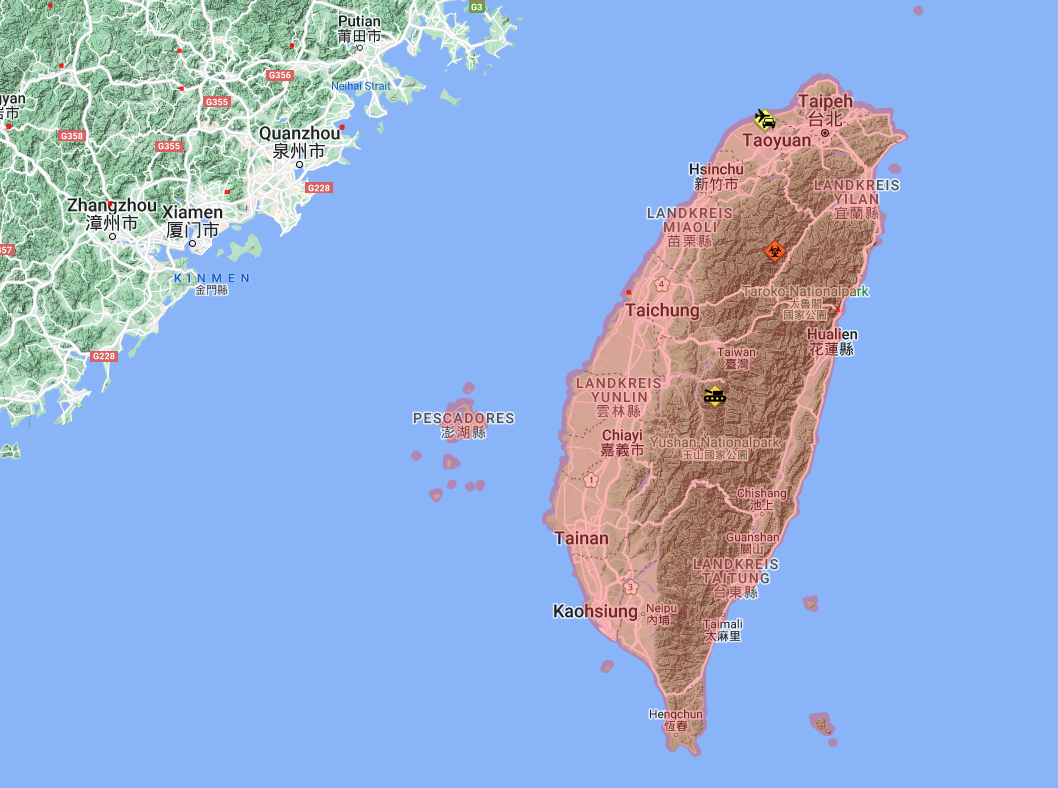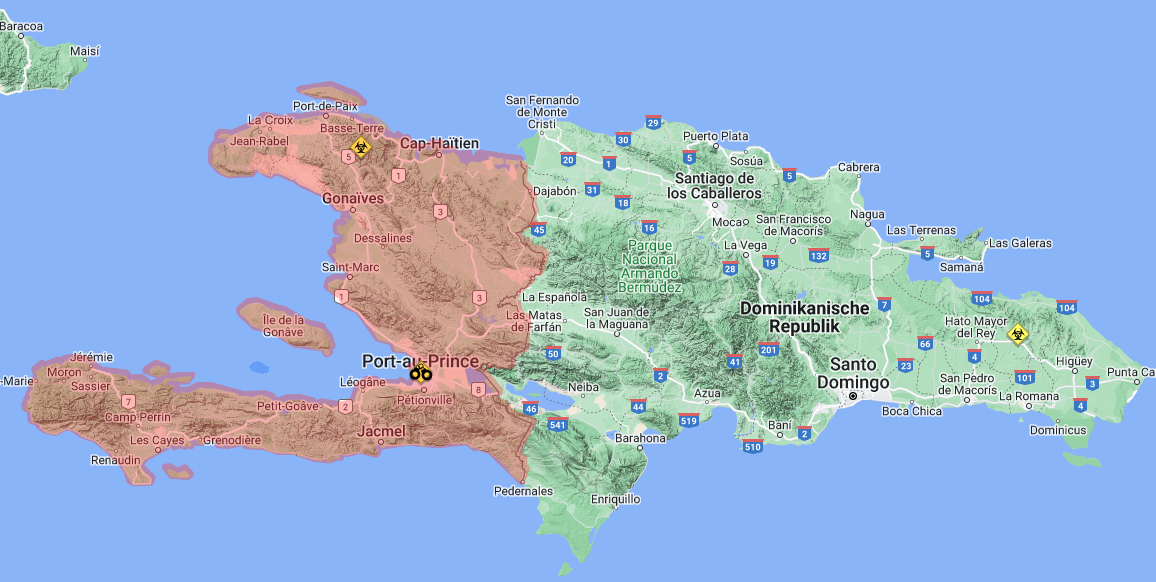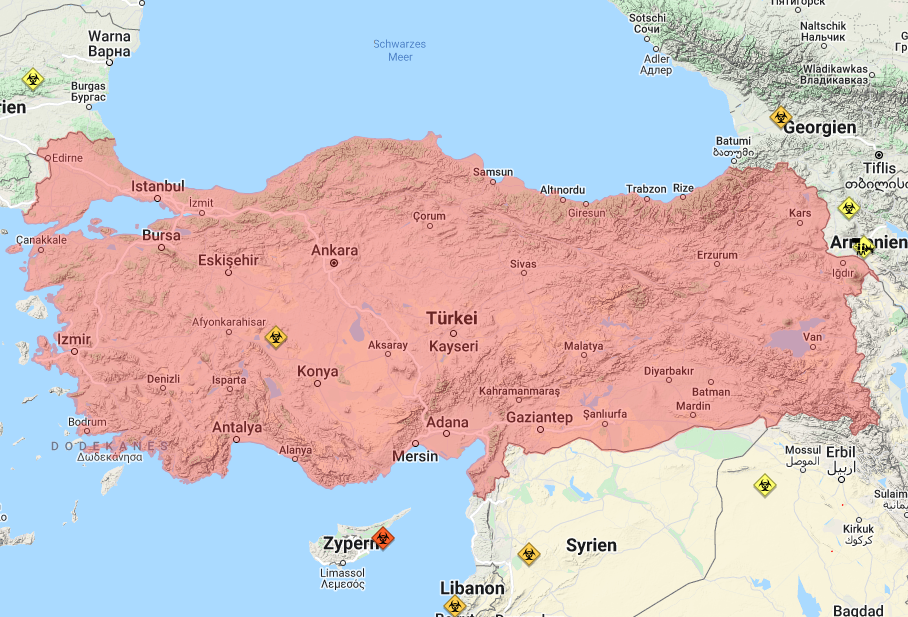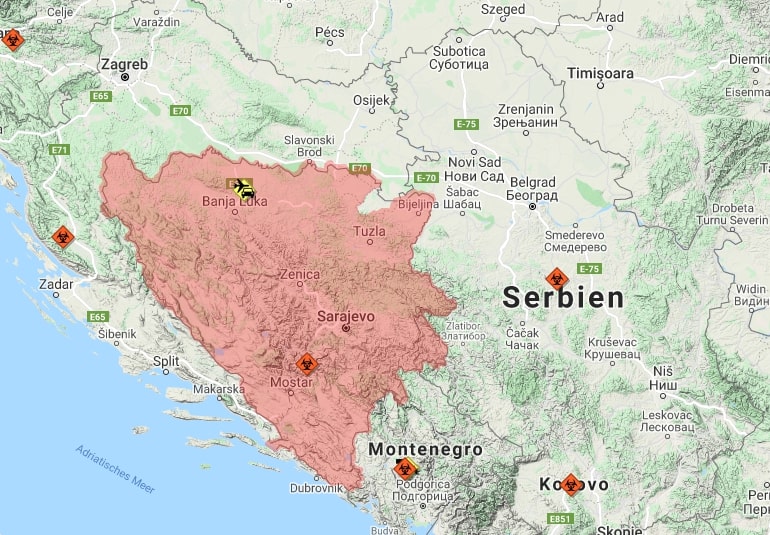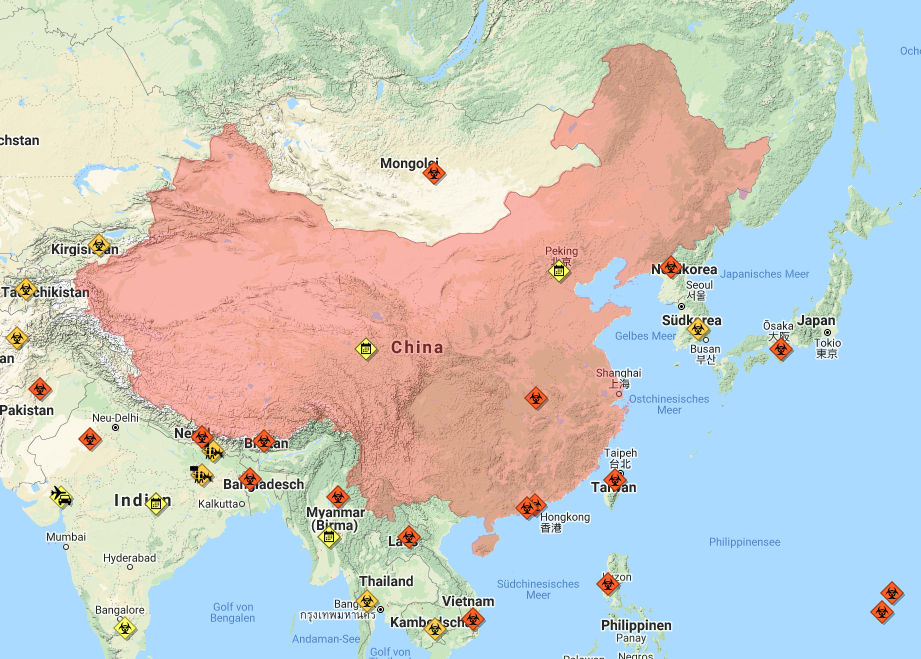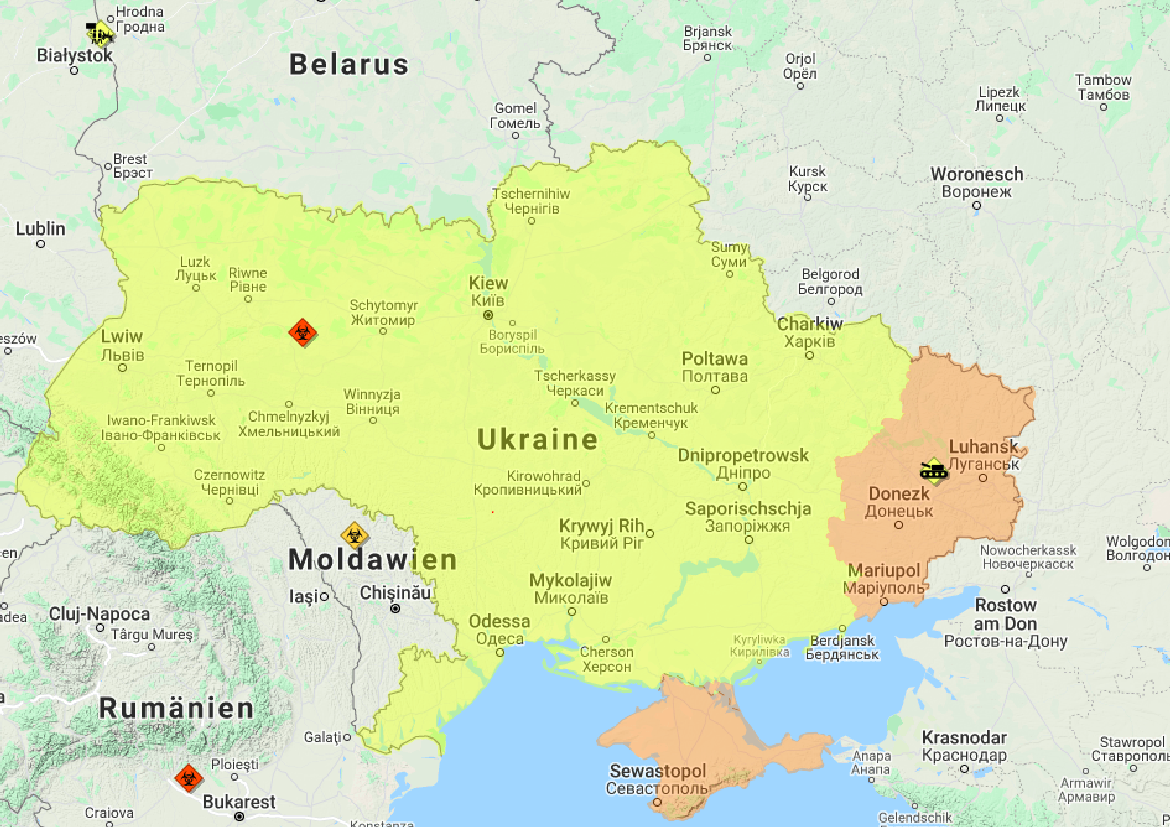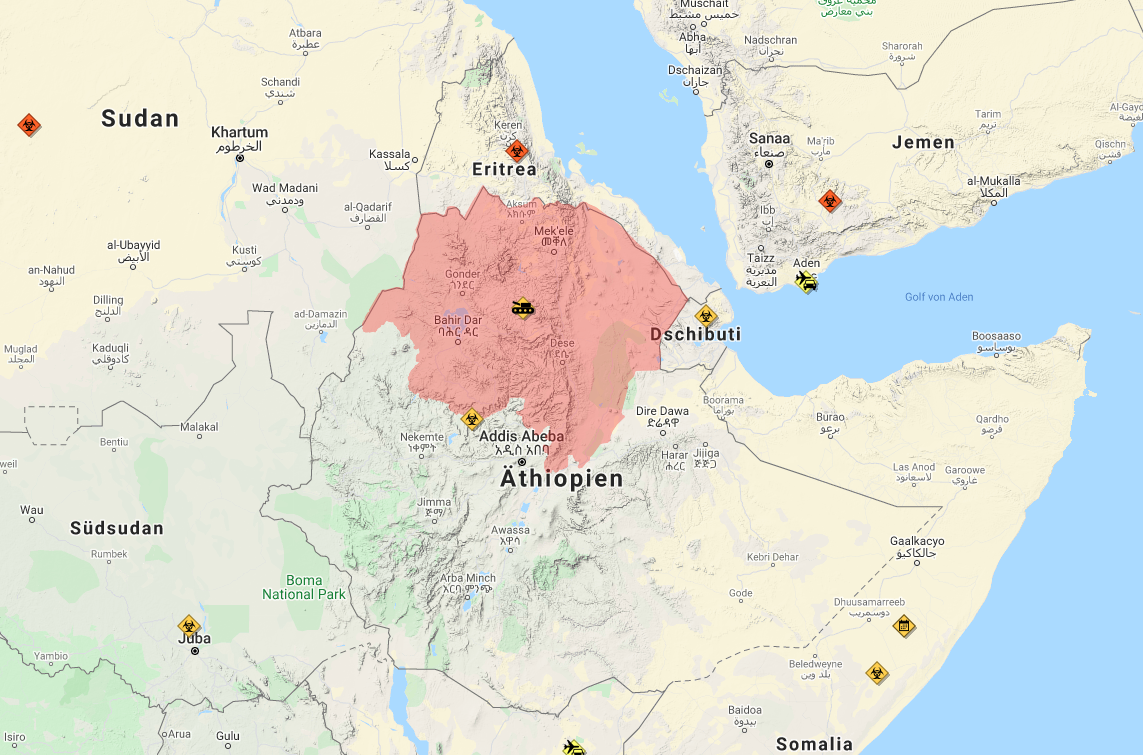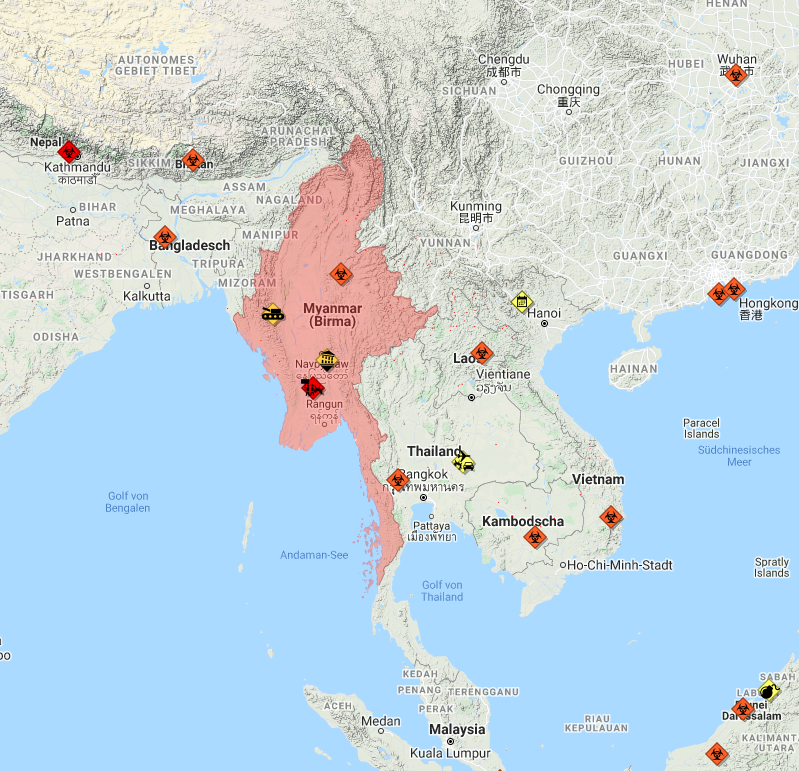The countdown is on: In a few days the Summer Olympics will finally start! Read what you need to know about the Games in France in July and August 2024.
For more than a week, the tourist image of New Caledonia has been suffering: roadblocks and burnt-out cars replace images of pristine white beaches and South Sea flair. The trigger for the current unrest is a proposed legislative change by the distant Paris government that would grant voting rights to thousands of French-born residents of the Pacific island nation.
Overnight Sunday (13/14 April, local time), Iran has sent more than 300 combat drones and projectiles towards Israel. According to Israeli reports, around 99 per cent of the drones and projectiles were repelled.
While many Germans are hoping for a repeat of the “summer fairytale” of 2006, security authorities are preparing for all eventualities. The threat of Islamist terrorism remains acute, also in Germany, announced Federal Interior Minister Nancy Faeser after the deadly attack in Moscow. In particular, a regional branch of the so-called Islamic State (ISIS) has been moving to the centre of attention.
El Niño usually brings warmer temperatures and changes in precipitation patterns, which can affect winter sports areas.
The summer of 2023 brought worrying negative headlines from the Mediterranean region: devastating forest fires in Greece and Tunisia, scorching heat on the Costa Brava.
As of the end of 2023, despite several other politicians throwing their hats into the ring as potential Republican and Democratic nominees, most experts still currently believe that it will ultimately come down to a rehashing of this 2020 election race between former President Donald Trump and current President Joseph Biden.
08 February: General election in Pakistan In a year that will be characterised by elections in some of the most populous and economically strongest countries, Pakistan will lead the way. The political situation in the country has been very tense since his dismissal and the legal proceedings against former Prime Minister Imran Khan. Added to […]
The situation in West Africa and the Sahel is changing. An overview and an outlook for the year 2024.
Israel’s and Saudi Arabia’s relations are converging. The impact and the chance of an agreement are greater than ever.
In the 21st century, the expansionist fantasies of national populism have led to bloody escalations that can hardly be controlled by the established international security mechanisms. Even before one crisis has been sustainably resolved, a new one is already emerging. Looking back, there is little hope for an easing of tensions in 2024.
A cursory review of 2023, looking at the impact of various events on travel, brings to mind a handful of major topics: Russia’s ongoing war of aggression against Ukraine, Hamas’ terrorist attack on Israel on 7 October and Israel’s subsequent military response, as well as the devastating earthquakes in Turkey and Morocco and the fires […]
After Azerbaijani forces began a large-scale “anti-terrorist operation of local character to restore constitutional order” in Nagorno-Karabakh on Tuesday morning (19 September), combat operations ceased at 1 pm local time on Wednesday (20 September). In the evening, the Azerbaijani president declared the operation over.
Jihadists advancing, Western militaries on their way out, and an entire country on the brink of chaos. This description should sound painfully familiar. However, the country in question is not Afghanistan in 2021, but Mali in 2022. The parallels don’t stop there the multi-ethnic Sahel nation is also suffering under dubious government leadership and is host to a substantial number of international military stabilisation forces struggling to contain a growing Islamist insurgency. The sense of déjà vu may grow stronger yet because the security situation in the West African nation is rapidly deteriorating. Accordingly, Europeans could be staring down the barrel of another Afghanistan-like fiasco – only this time largely of their own making.
Fighter jets race into action, warships go to battle stations, and the air reverberates with the roar of ballistic missiles. For the time being, this is merely a large-scale military exercise the People’s Republic of China is conducting around the island of Taiwan. Yet, as the Russian war in Ukraine has shown, a military exercise […]
With its pleasant climate, beautiful beaches, colonial architecture, and unique cultural history, the island nation of Haiti should be among the top tourist destinations in the Caribbean. However, persistent political instability and a devastating earthquake in 2010 that essentially levelled the capital Port-au-Prince and killed up to 220,000 people have contributed to making the country […]
urned into the worst humanitarian disaster in Europe since the end of the Second World War. The economic costs for Ukraine are already immeasurable, and the war is wreaking havoc across the globe. Yet for Turkey, the war might just also offer a unique opportunity. Not only has the country emerged as a crucial diplomatic mediator between the warring parties, the conflict has also massively boosted its significance as an aviation and tourism hub. Thus, if it plays its cards right, could Turkey possibly emerge as one of the unlikely winners of the Russo-Ukrainian war?
Another temporary delay of the eagerly awaited “comeback of travel” or could this be the new normal of international travel?
Of all the controversial remakes and sequels of recent years, a remake of the Yugoslav Wars probably ranks among the least desired. While Europe’s collective attention is firmly focused on the imminent prospect of war between Ukraine and Russia (A3M report see here), another serious calamity in the northwestern part of the Balkan peninsula might already be brewing. In Bosnia and Herzegovina, Muslim Bosniaks, Croats, and Serbs are locked in a bitter stand-off in the worst political crisis since the country’s foundation. This crisis not only threatens to rip apart Bosnia and Herzegovina, but also to engulf the battle-scarred Balkans in yet another armed conflict.
An East Asian nation walled off from the outside world, suspicious of foreigners and of any contact with them. No, this description is not referring to North Korea, but increasingly also appears to fit the People’s Republic of China. In its fight against COVID-19, the People’s Republic has imposed some of the world’s most extreme pandemic control measures, both within the country as well as when it comes to entry restrictions for international travellers. Moreover, China is the last major country to follow a so-called “zero-COVID” strategy of ruthlessly stamping out any and all outbreaks through strict lockdowns and mass testing. However, with new COVID variants becoming ever more transmissible, how much longer can the world’s second-largest economy maintain this state of permanent semi-isolation?
Increasingly shrill rhetoric, thousands of desperate people stuck without shelter in wintry conditions, and multiple dead amidst an escalating geopolitical stand-off. This situation at the border between Belarus and Poland is the result of Belarusian dictator Alexander Lukashenko following through on his threat to “flood the European Union with migrants” in retaliation for EU sanctions. Naturally, when it comes to weakening the EU, Russian President Putin has been more than willing to lend a helping hand, by offering the regime in Minsk rhetorical backing, logistical support and military shows of force at the Polish-Belarusian border. However, the Kremlin might have set its sight on something higher than merely embarrassing the EU. Fears are growing, that while the world’s attention is fixed on the border between Poland and Belarus, Russia could go to war in Ukraine.
Entire neighbourhoods levelled, over 200 people killed, thousands injured, and hundreds of thousands more homeless. The gigantic chemical explosion that devastated the Lebanese capital of Beirut on 4. August 2020 would have been an unmitigated disaster for any state, but for Lebanon, it just marked the high point of a year of calamity. The current situation in the country can only be described as bleak and deteriorating: A currency in free-fall, more than half the population below the poverty line, daily nationwide power outages, people fighting each other for daily necessities all amount to one of the worst economic crises ever recorded. Bleak may have been too optimistic a term, at this point describing Lebanon as a nation in the process of state failure, seems arguably more fitting.
What was supposed to be nothing more than “a large-scale law enforcement operation” with “limited and achievable” objectives, turned into a protracted armed struggle that in light of recent developments the Ethiopian Armed Forces might very well lose.
A paralysed UN Security Council, a deadly crackdown in the face of a popular mass movement, hundreds of thousands in flight, and brutalized protesters taking up arms. The parallels between the deteriorating situation in Myanmar and the early stages of the Syrian disaster are as disconcerting as they are many – and they are multiplying. […]
If you want to take part in the Olympic Games in Paris, you need to familiarize yourself with the entry regulations. There are sometimes complex differences between various countries that need to be taken into account.



